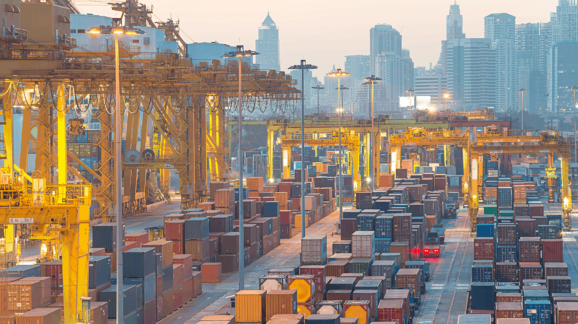Is There Such a Thing as Too Much Trade?

A common argument for free trade is that fewer trade barriers mean more trade. That argument is mostly true—there are a lot of deals people want to make but don’t, because trade barriers make them too expensive to be worthwhile. But there is more to the story.
The thinking goes like this: there is a point when enough is enough. After a certain amount of wheeling and dealing, people obtain the best possible mix of goods and services they can under the circumstances. Then they stop trading. The transaction costs of further action exceed the benefits. In a weird, non-Panglossian way, this would be the best of all possible worlds, because people could do no better.
Where exactly is that magical point? Nobody knows. But preventing people from trying to find out doesn’t do any good, and almost certainly does harm. And that’s the argument against trade barriers, even in a world with no trade (free trade in a trade-free world?). Trade barriers prevent that discovery process from getting people as close as they can get to that equilibrium point.
A skeptic could argue, correctly, that that equilibrium point will never be reached. It’s just a blackboard argument that doesn’t resemble a real-life economy.
Skeptics have another good point: that unknown, unachievable optimum is a moving target. And tariffs or not, the frictions of commerce are already easing up all the time anyway—online shopping, innovations in shipping technology, and peer-to-peer sharing services such as Uber and Airbnb are lowering transaction costs every year, making it easier than ever for people to trade. These innovations are constantly moving the equilibrium goalposts from one unknown point to another unknown point, neither of which can ever be reached anyway.
The transaction cost point in particular is especially important in today’s economy, as Michael Munger points out in his book “Tomorrow 3.0” (see my review here). But this is not an argument in favor of trade barriers. This is an example of what Harold Demsetz called the Nirvana Fallacy—real-world markets can’t achieve idealized blackboard perfection, therefore government intervention is necessary, or least indifferent. Real-world free trade will never achieve idealized perfection, therefore trade barriers matter less than free trade purists think.
This line of thinking does no one any good. As the famous Green Bay Packers coach Vince Lombardi pointed out, perfection is impossible. But in constantly chasing after it, you can achieve excellence. No realistic free trader argues that a tariff-free world would be perfectly efficient. But it would be better than the current trade regime, and is worth chasing. In doing so, we can achieve excellence as best we can in this non-blackboard world.
All this is a long-winded way of answering the question this post’s title asks. Is there such a thing as too much trade? Yes. And people should be free to try and find out where that point is.
For more, read the new CEI paper “Traders of the Lost Ark: Rediscovering a Moral and Economic Case for Free Trade” here.